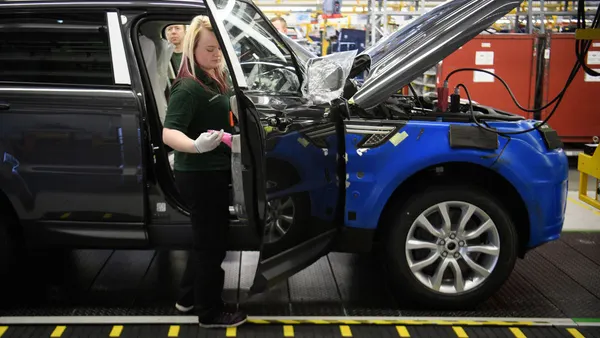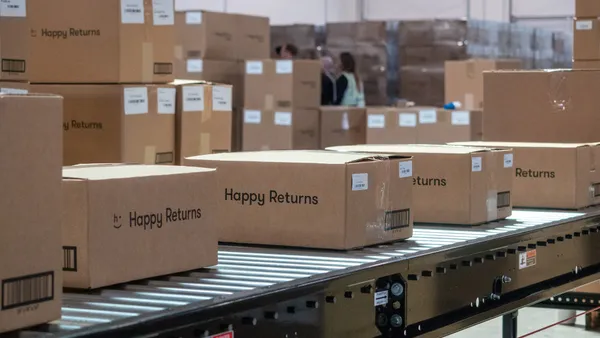Dive Brief:
- President Donald Trump recently commented that Apple intends to locate three large manufacturing plants within the U.S., according to an interview with The Wall Street Journal.
- Apple currently employs two million workers in the U.S., including suppliers, app developers and other entrepreneurs. Approximately 80,000 are direct employees.
- If Apple does relocate a portion of its production to the U.S., the Journal predicts the cost of an iPhone would likely rise $30-$40. Depending on how extensive the U.S. manufacturing process becomes, an increase of as much as $80 is possible.
Dive Insight:
Debates over the pros and cons of offshoring are resurfacing, thanks to the president's vows to revive American manufacturing, revealing the complexity of global supply chains. Arguments over unfair, low labor costs in China are great for an optimistic sound-bite, but in reality, companies typically prefer higher profits, choosing to switch production to other inexpensive countries rather than back to the U.S.
The fact is that Apple is not in the business of controlling its own production anymore. The company maintains just one factory in Ireland — a tax haven — making it unlikely Apple will independently bring three plants to the U.S. However, it can encourage its suppliers to do so.
Apple has pledged to invest a billion dollars in American manufacturing. Yet, according to New York Magazine, those funds will most likely be filtered to existing American companies including Corning, 3M, Caterpillar and Lapmaster, all of which already produce various bits of the company's hardware.
But will Apple's billion-dollar investment include additional support for offshore suppliers? Recent announcements suggest it may. On Wednesday, Foxconn Technology announced it would open a plant in Wisconsin. As Apple's largest supplier and assembler of iPhones, the company will bring thousands of jobs to the Midwestern state. President Trump immediately took credit for the choice, but it remains unclear what Apple's role was in the process, and if more suppliers are to follow suit.













